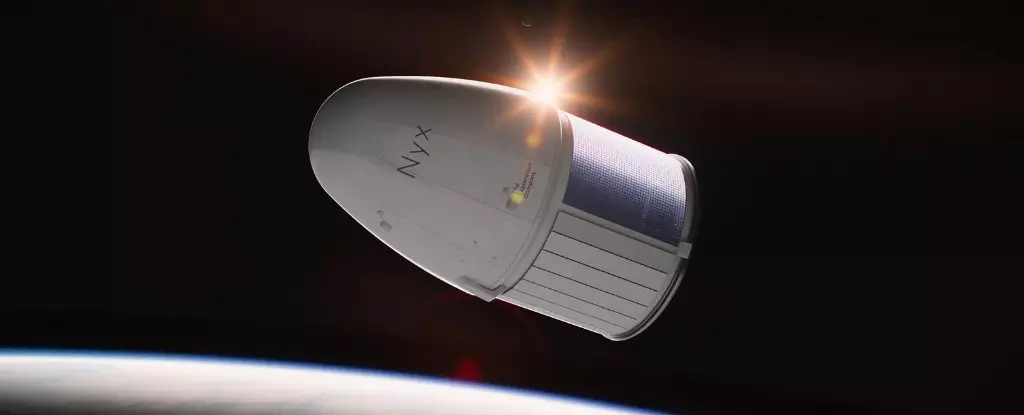The era of human space exploration is undeniably evolving at breakneck speed, largely propelled by the burgeoning commercial space industry. From the historic launch of Sputnik 1 to the expansive array of private and corporate payloads now gracing Earth’s orbit, our capacity to send diverse cargos—ranging from scientific experiments to personal tributes—signals a paradigm shift. Unlike the purely governmental efforts of the past, today’s space ventures embrace commercial entities that push boundaries with an intoxicating blend of ambition and risk. This shift embodies a profound democratization: space no longer exclusively belongs to nations but is increasingly accessible to private entrepreneurs, startups, and individuals seeking to etch their stories onto the canvas of the universe.
What’s fascinating is how this new frontier invites not just scientific inquiry but deeply personal, almost philosophical expressions of life and legacy. Companies like The Exploration Company exemplify this movement by designing innovative capsules—like Nyx—that transport human remains, living organisms, and other unique payloads beyond our planet. These endeavors aim to bridge the intangible human desire to connect with the cosmos and tangible technological progress. But with innovation come formidable challenges, as evidenced by recent missions that highlight both the potential benefits and inherent risks of space commerce.
The Risks of Pioneering New Technologies
The Nyx capsule’s recent journey underscores this duality of progress vividly. Launched on a rideshare mission with the Falcon-9 from Vandenberg, the payload was an ambitious blend of memorials, scientific experiments, and even cannabis plant samples. The goal was not merely to push technological boundaries but also to explore how life responds to space conditions—a pursuit that’s as much philosophical as scientific. Yet, despite the technical successes of reaching orbit and maintaining communications during reentry, the mission culminated in a somber failure: the capsule’s parachutes did not deploy properly, resulting in a crash over the Pacific Ocean and the loss of all cargo.
This incident exemplifies the unpredictable nature of space ventures, especially when navigating uncharted territory with nascent tech. While the company called it a “partial success,” the reality is a sobering reminder that even carefully engineered systems can falter. These failures, though painful, are vital for the iterative process of innovation, pushing teams to refine their designs and operational protocols. In this context, the risk isn’t just technical but also emotional, given that payloads often carry personal or sentimental value—ashes of loved ones, memorials, or rare biological samples.
Furthermore, the loss of these payloads exposes a debate about the commercialization of personal remains for space burial. As companies facilitate moon and asteroid funerals, questions about the ethics and environmental impacts of such practices become more urgent. Are we venturing into a future where the cosmos is commodified and personal grief becomes part of the commercial space industry? While these offerings may provide comfort or a sense of connection to space, they also push the boundaries of what is socially and ethically acceptable.
Lessons, Failures, and a Future of Endless Possibilities
Nevertheless, setbacks like the Nyx crash do not signify failure in a traditional sense but rather serve as crucial stepping stones. The lessons gleaned from these misadventures will inform future missions, refining technology and operational procedures. The exploration company’s transparent acknowledgment of the situation and their commitment to rapid re-flight demonstrate a resilient attitude that’s essential for sustainable progress. Innovation, especially in such high-stakes environments, rarely follows a straight line; it’s riddled with trial, error, and adaptation.
Looking ahead, the company’s proposal to deliver payloads to the International Space Station and beyond signals a forward-thinking vision that transcends mere experimentation. Their plans for a demonstration flight in 2028, pending European Space Agency support, illustrate a strategic approach to demonstrating reliability and safety. These endeavors are not just technological milestones but cultural ones, transforming our perception of space from an exclusive, government-run domain to an open, commercially driven arena where every payload contains stories, dreams, and endeavors.
Additionally, the scope of these payloads is expanding. The inclusion of biological samples, plant life, and personal remains reflects a desire to embed humanity more deeply into space exploration—not merely as passive observers but as active participants in the cosmos’ ongoing story. Such initiatives raise vital questions about our future responsibilities. As we extend our reach into space, we carry with us not only science and technology but also cultural and ethical considerations: how do we honor loved ones lost? How do we ensure responsible exploration?
The shift toward commercial space endeavors demands a careful, critical perspective—not just optimistic hope. It invites us to weigh the tremendous potentials against the pitfalls of unregulated innovation, environmental impacts, and ethical boundaries. The space industry of tomorrow will be judged not only by its technological breakthroughs but by how responsibly and thoughtfully it navigates the complex tapestry of human ambition and limitation.

